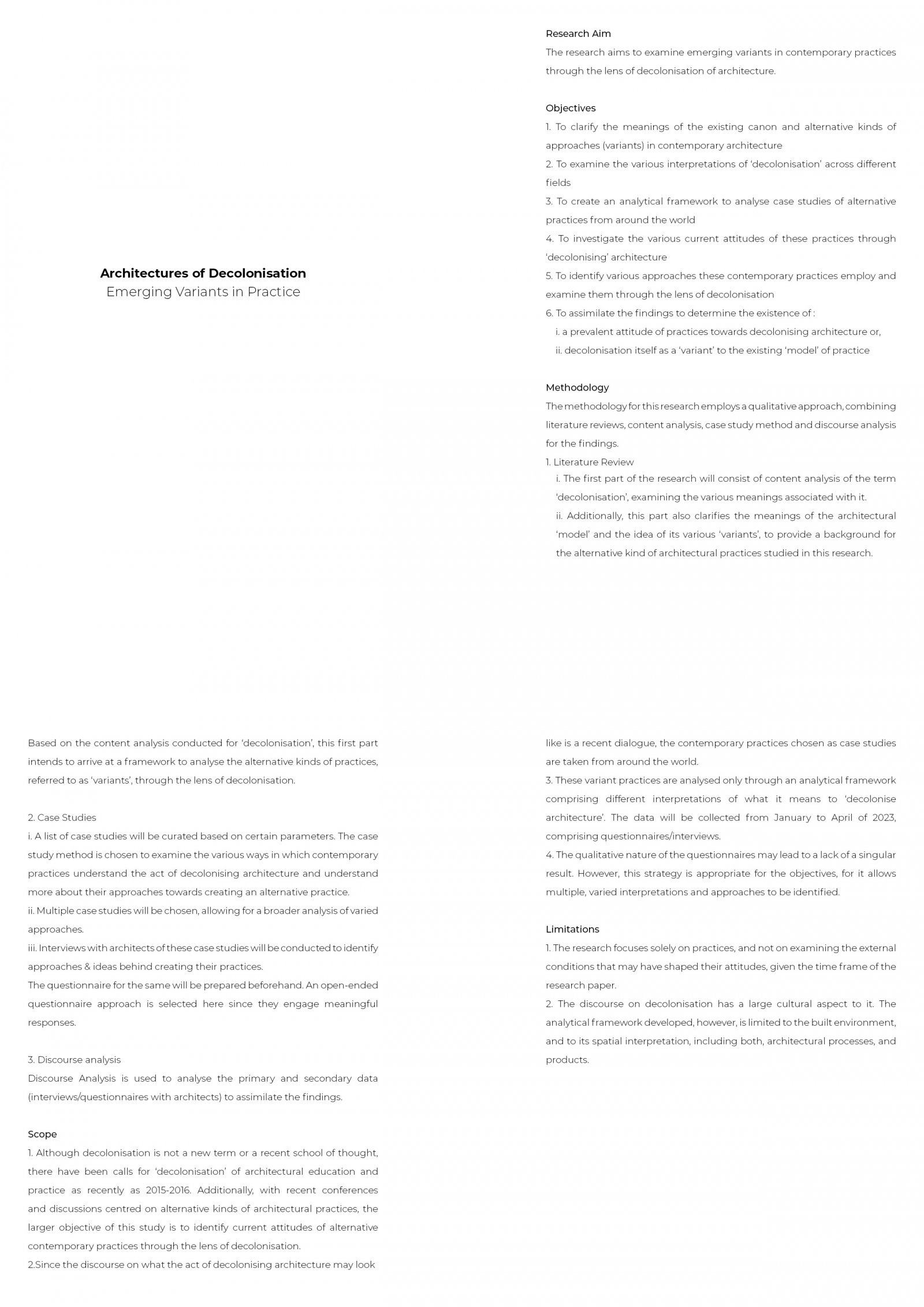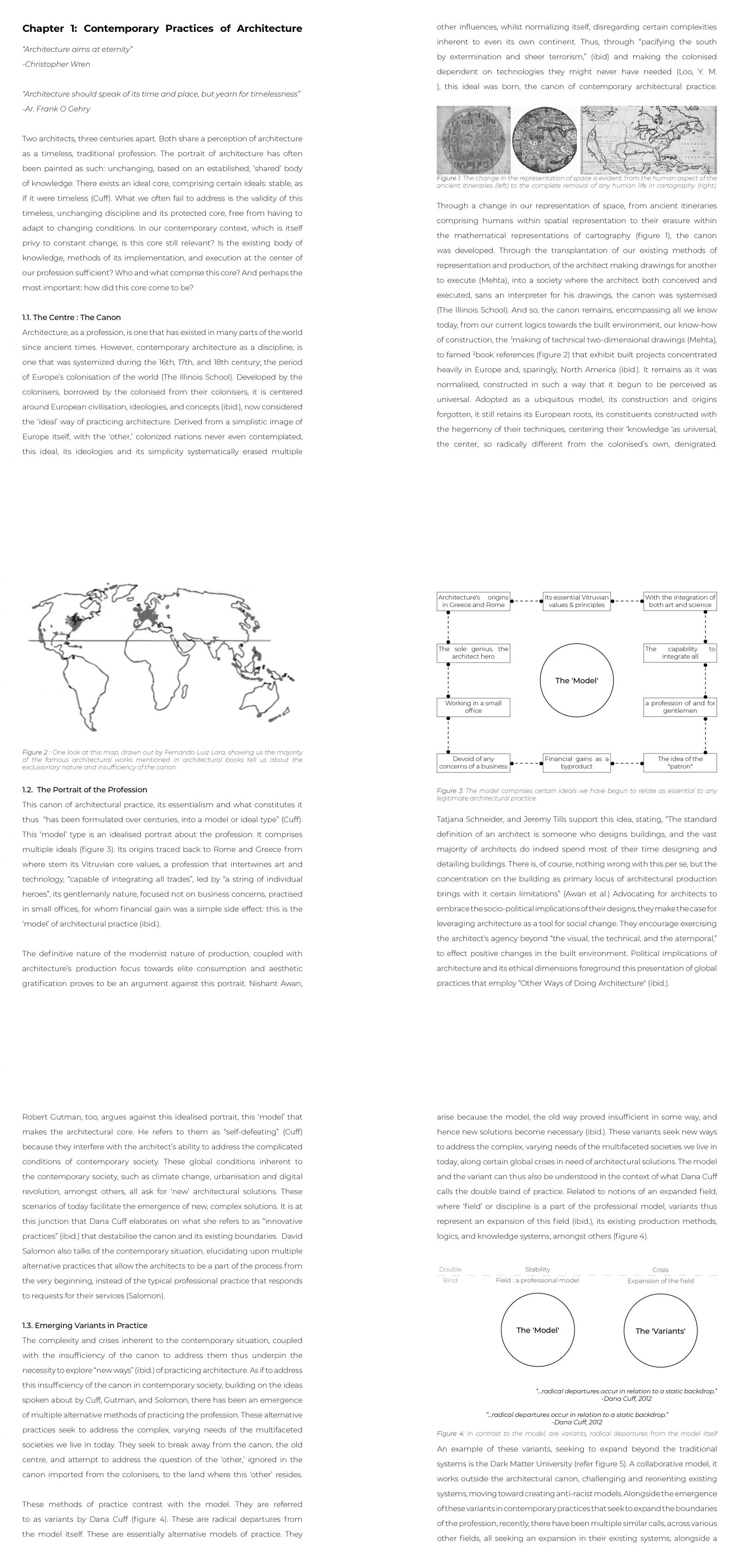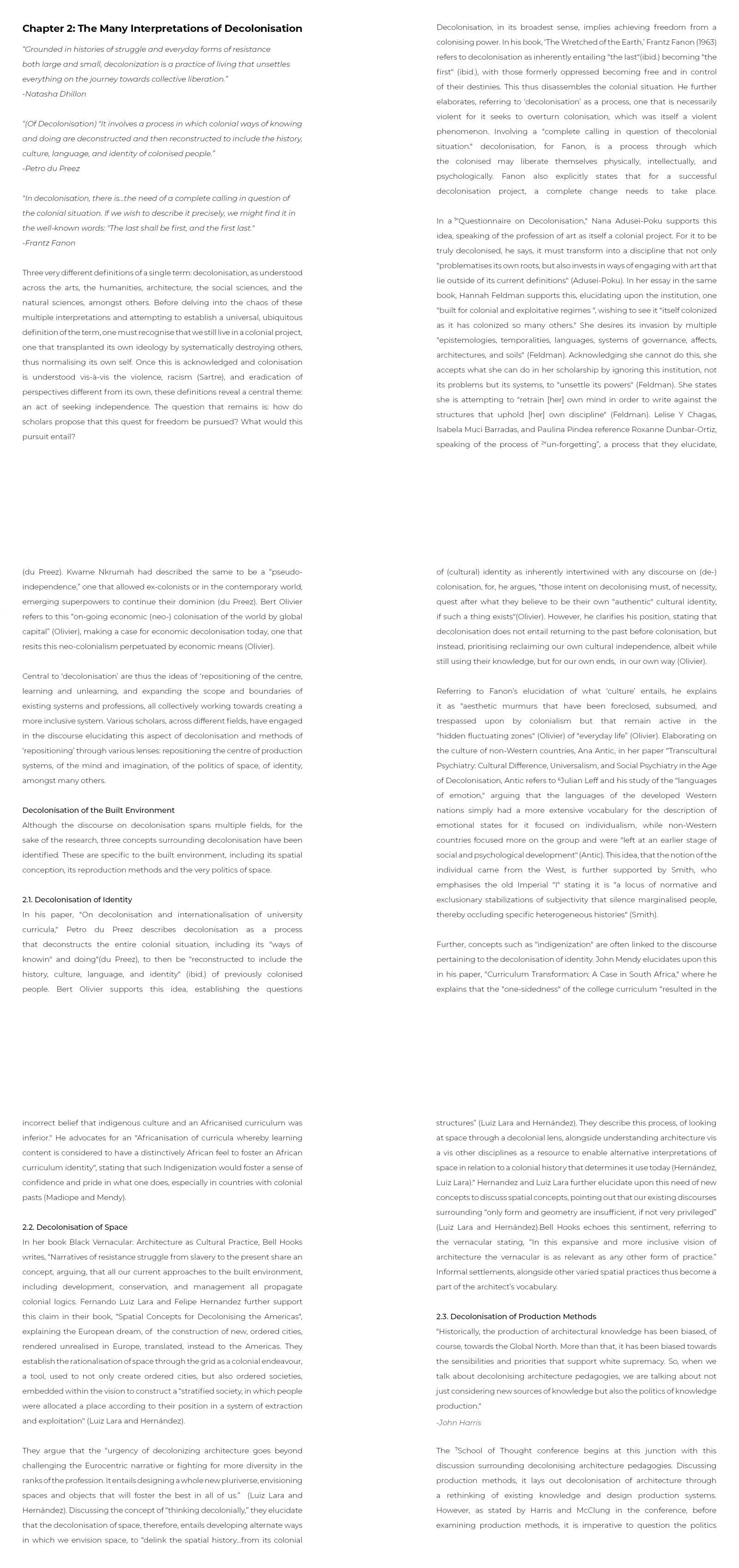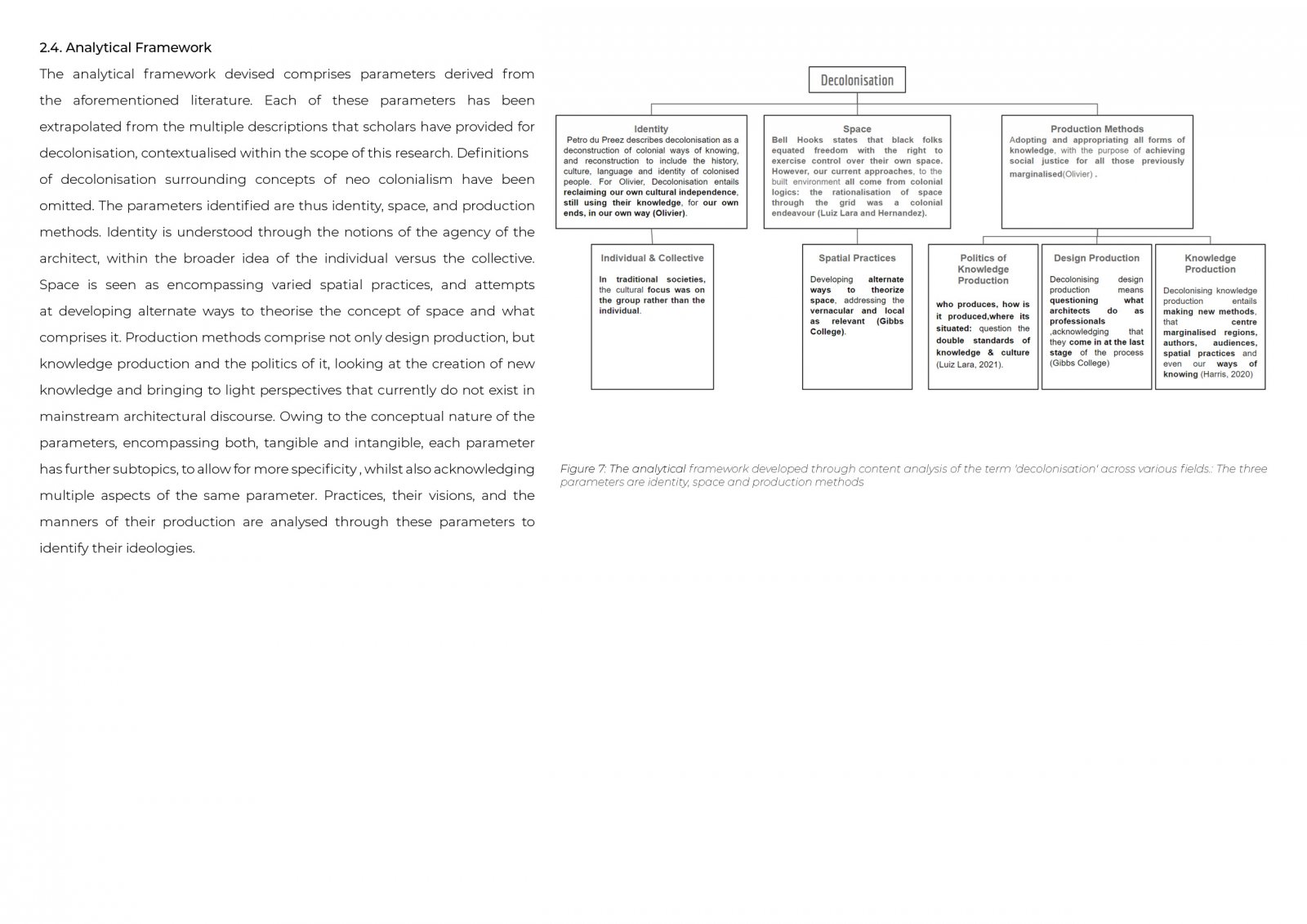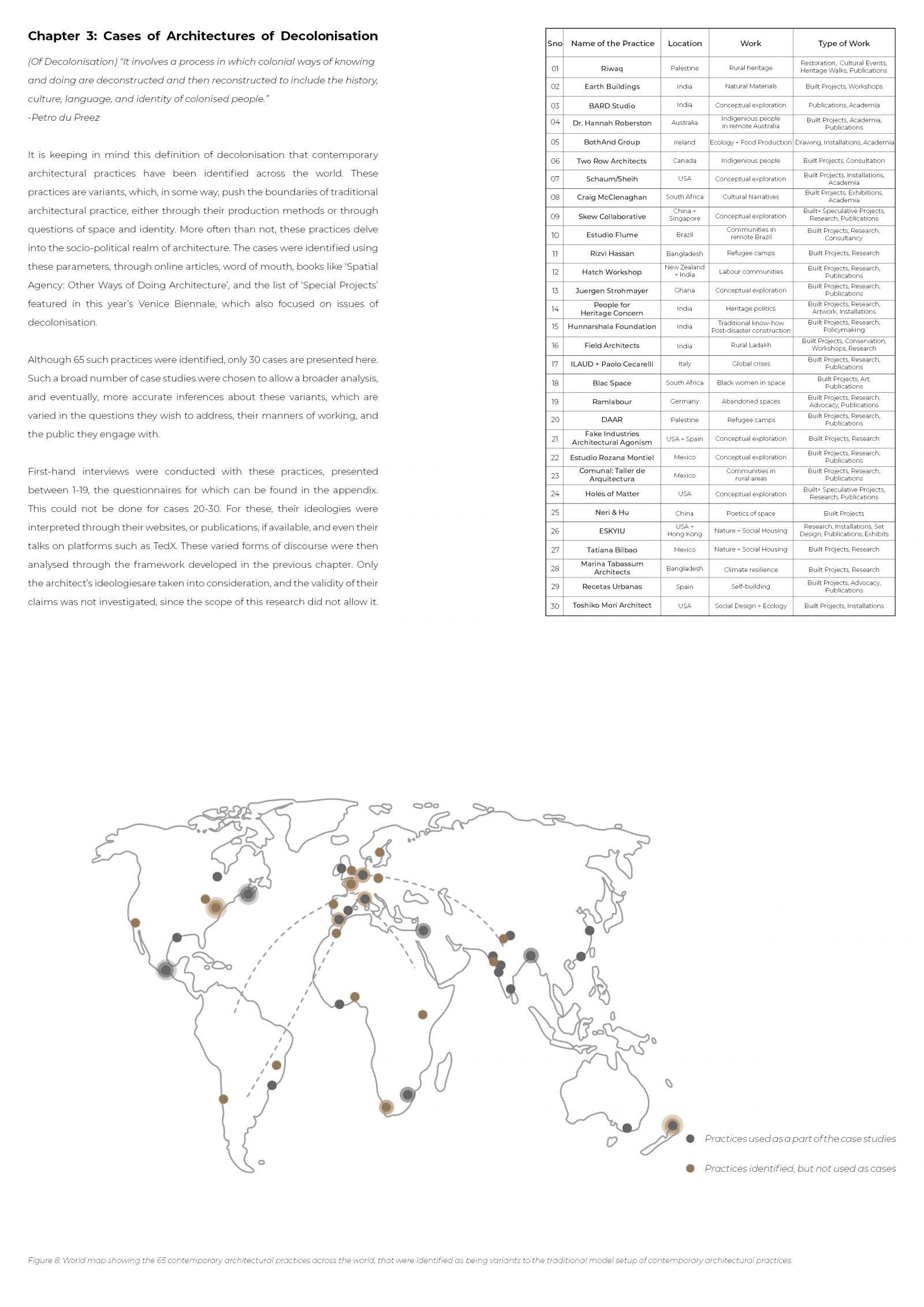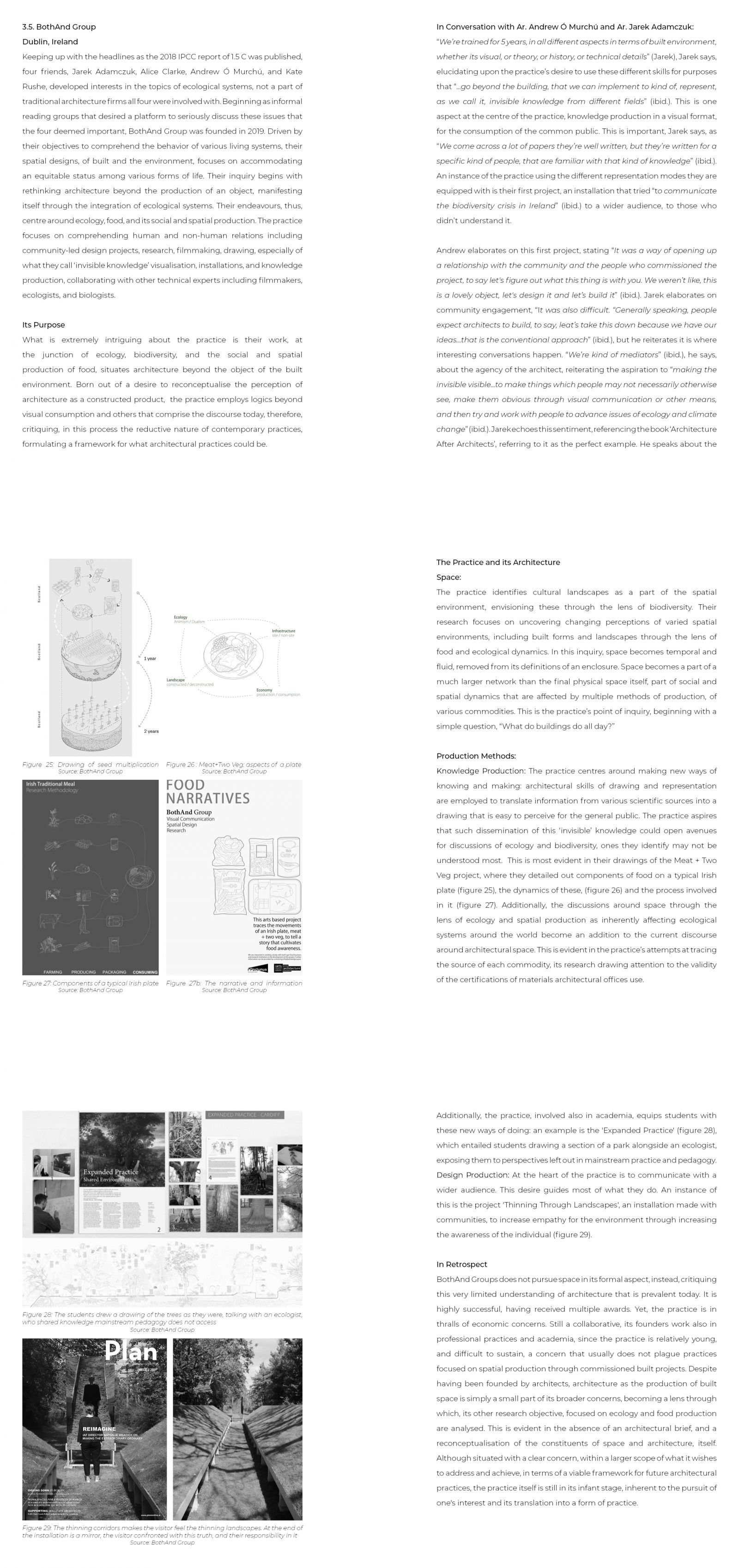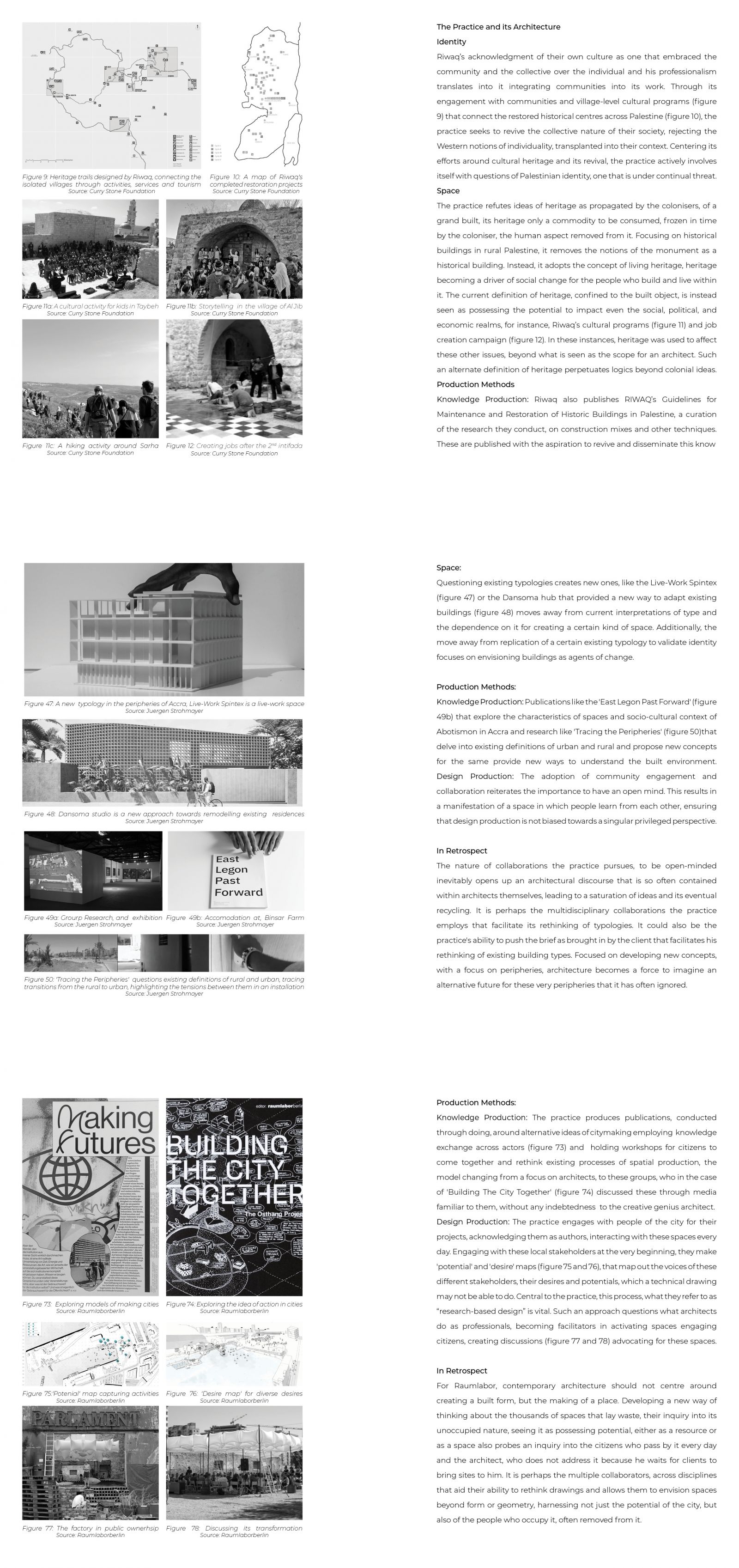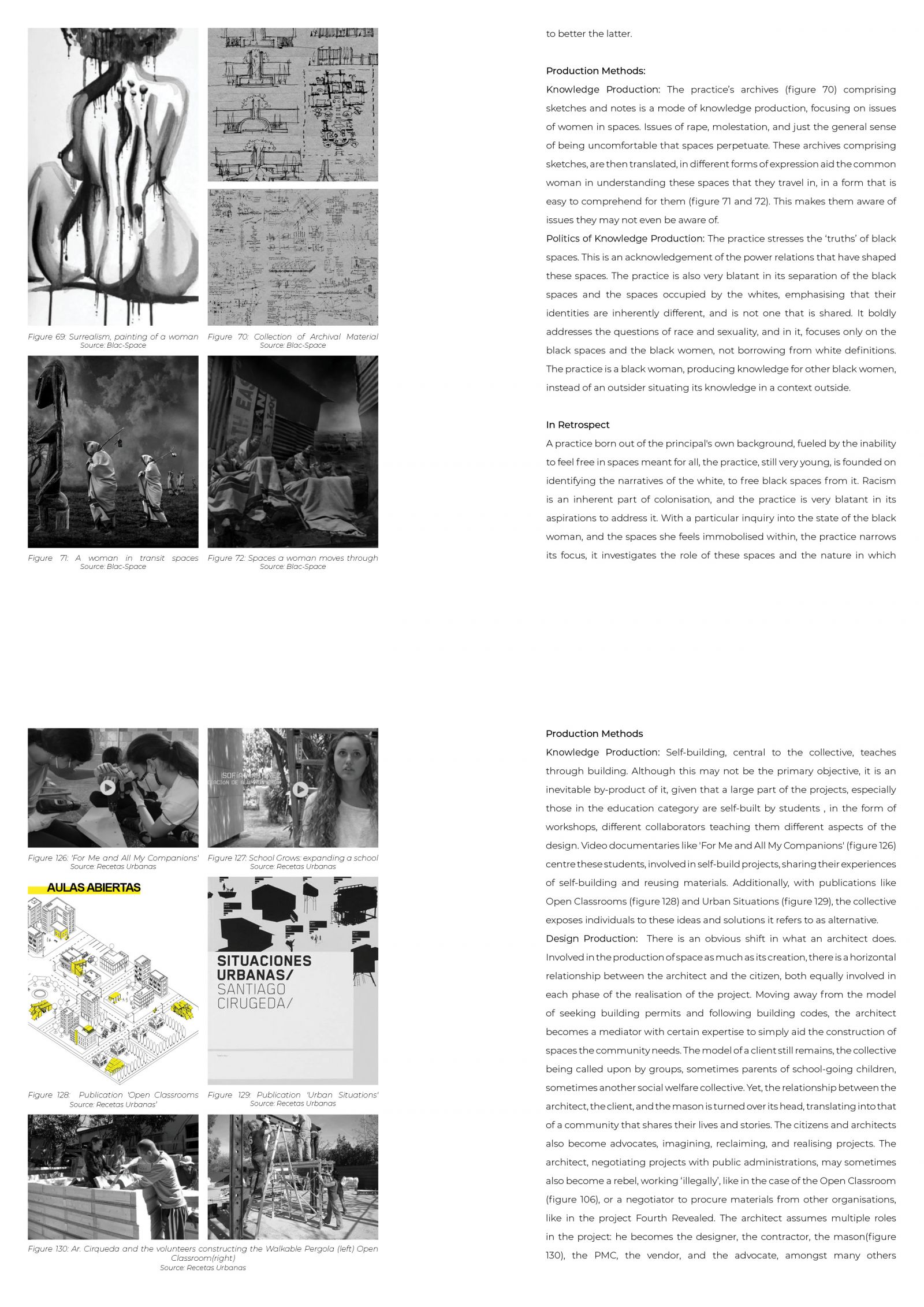Your browser is out-of-date!
For a richer surfing experience on our website, please update your browser. Update my browser now!
For a richer surfing experience on our website, please update your browser. Update my browser now!
Contemporary practices in architecture have begun to see the emergence of multiple new alternative models of practice that challenge the ideal architectural canon and its validity. These variants suggest a deviation from the existing trajectories of the profession, instead, attempting to break from the past, seeking to expand the boundaries, to include previously non-existent demographics, actors and audiences. They question the professions’ position within society at large, to address what is truly relevant in the world today. This idea of disassembling the European canon is also central to the idea of ‘decolonisation’. ‘Decolonise’ was a term that featured, but was rarely the central focus surrounding discourse on the work of anti-colonial thinkers like Frantz Fanon and Paulo Friere. A school of thought that has been around for over a century now, the term has gained newfound relevance in the world today, with professionals calling for a ‘decolonisation’ of practices, of production and of systems. Discussions centred around it question its conceptual proposition, with various meanings assigned to what the act of ‘decolonisation’ may look like, across different fields. This research thus aims to identify and examine the variants in contemporary practice by presenting a list of varied case studies of alternative models of practices from around the world, and investigating their interpretations of what it means to truly ‘decolonise’ architectural practice. Through interviews conducted with their architects, the larger objective of this study is to identify current attitudes of alternative nature of contemporary practices through the lens of decolonisation. Identifying these prevalent attitudes of contemporary practices may then provide a roadmap to the future, providing valuable insights to the practices of the future, and how they may have to evolve to be relevant. Additionally, as the discourse on ‘decolonising’ architectural education pedagogy gains momentum, this research may also be of interest to those looking to address the profession’s knowledge production systems and representational disparities in academia.
